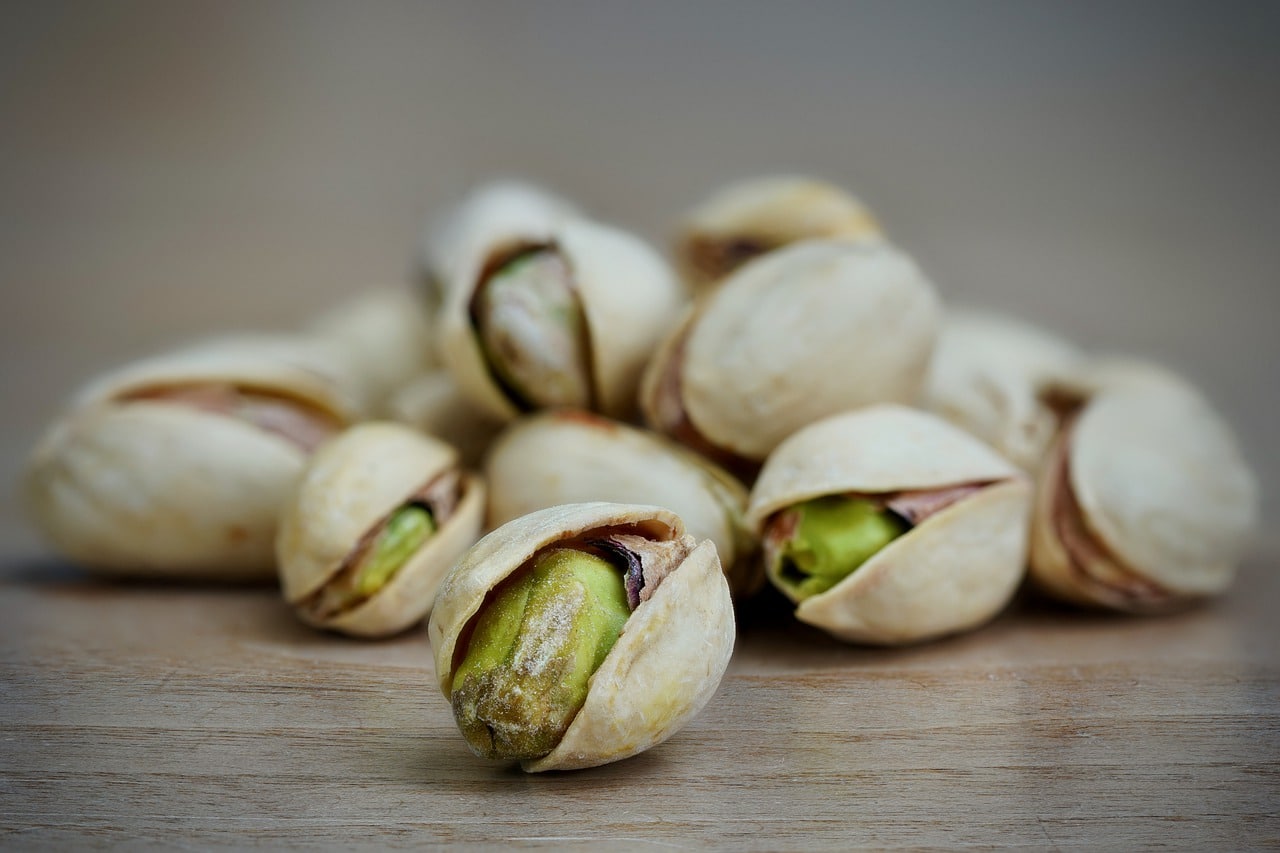Do pistachios contain melatonin? Yes, they do contain a measure of melatonin. Read on to find out how pistachios can impact your health – positively.
Are Pistachios High in Melatonin?
Do pistachios have melatonin? People have been talking about pistachios and melatonin, and it appears that they are correct. Studies show that pistachios contain one hundred to a thousand times more naturally-occurring melatonin than other fruits and vegetables. Smaller studies have also shown that melatonin does naturally occur in pistachios, and the results of these studies are promising.
Another study from Louisiana State University showed that pistachios are not just a very nutritious and healthy snack. It’s also an easy and great source of melatonin, which alone can already contribute to many people’s health and wellness. The researchers used roasted pistachios and raw pistachios and extracted a stunning 660 nanograms of melatonin for every one gram of pistachio in the said study.
This is truly a nutrition milestone because melatonin doesn’t occur easily in other plants, and pistachios exert zero effort in naturally synthesizing melatonin.
How Many Pistachios Should I Eat for Sleep?
Do pistachios help you sleep? While prescription-level melatonin is usually one to three milligrams per dose, eating a handful of pistachios before bedtime can condition you to sleep better.
If you are suffering from insomnia, restlessness, anxiety, and jet lag and are having a tough time falling asleep, avoid caffeine and spicy food instead of focusing on sleep-inducing food items like pistachios. Take note that taking too much melatonin can be problematic, too. If you take too much, the effects of melatonin can extend to daytime hours, and we are pretty sure that you don’t want to feel sleepy when you are working.
What Happens When You Eat Too Many Pistachios?
Do pistachios make you sleepy? Since pistachios only contain a small quantity of melatonin per gram, there is no such thing as eating too many pistachios in the context of falling asleep. However, if we are talking about pistachios and other nuts’ calories, it’s best to limit your consumption to what is prescribed for the RDA for your height, weight, and age.
And as for the question, if they can make you sleepy, then yes, they might help in making you sleepy, especially if you are already watching what you eat before bedtime, and you are already observing proper sleep hygiene. Everything helps when it comes to getting better sleep at night.
What Food Has the Most Melatonin?
According to one study that compared different dietary sources of melatonin, the champion for having the most melatonin is still pistachios, followed by some mushrooms, fish, eggs, and cow’s milk.
Dried egg solids, for one, have far higher melatonin content compared to salmon. In the fruit category, it’s the cranberry that leads all the other fruits in melatonin content.
Other food items that provide different melatonin quantities include nuts, pork, beef, lamb, chicken, organ meats, whole eggs, colostrum power, toned milk, yogurt, fermented milk products, corn, rice, wheat, barley, strawberries, pineapple, cherries, and grapes.
Keep in mind that nearly all food items have melatonin to some extent. However, if you want to create the perfect list of food items to prepare at night if you want to fall asleep faster after dinner time, then aim for food items with higher melatonin content.
Other food items that might help you fall asleep include:
- Almonds – Almonds are highly nutritious, and just one ounce of this food can provide up to 23% of your RDA for riboflavin and phosphorous.
Like pistachios, almonds have natural melatonin content, so if you have almonds at night just before going to bed, then chances are you will feel sleepier and more relaxed – because that’s what melatonin does. - Turkey – Turkey is a monster when it comes to providing usable protein to the body. This high protein content may be the key to better sleep. According to the researcher, the protein content of meats can help promote better sleep at night, and these food items also reduce the chances of you waking up frequently. Turkey is also rich in tryptophan, an amino acid known for triggering an increase in melatonin production.
If you are struggling not just with falling asleep but also with raising the quality of your sleep at night, we recommend meats like turkey to help you fall asleep faster. Combing turkey with other food items like almonds and pistachios can also help you establish a sounder sleeping routine in the long term. - Chamomile tea – Chamomile tea has long been known to be sleep-inducing. It is probably the most popular relaxation tea globally, equaling or coming in at a very close second with green tea. It’s not a psychological effect, but rather, a physiological one. According to one study, chamomile tea contains an antioxidant called apigenin. Apigenin has been found to bind with specific receptors in the human brain that affect a person’s sleepiness. These receptors also have a beneficial effect on people who have insomnia.
One promising study that involved thirty-four adults showed that drinking chamomile tea for 28 days can make you fall asleep much more quickly. Nighttime wakefulness is also reduced, compared to test subjects that did not consume chamomile tea. - Kiwi – Kiwi is a well-loved fruit that appears to have an after-effect that nobody expected: it can help you fall asleep faster. It has been found that kiwis naturally contain serotonin, which is also responsible for the cycle of sleepiness and wakefulness that occurs in everyone.
- Walnuts – Walnuts are naturally abundant in many nutrients, and they may also help you sleep more quickly because of their natural ALA content. ALA is an amino acid that is transformed into DHA once ingested. DHA has a beneficial effect on serotonin production in the body as well.

